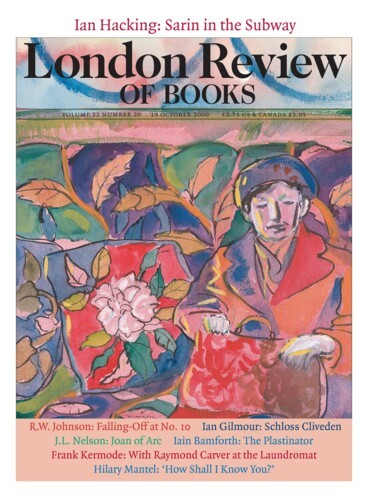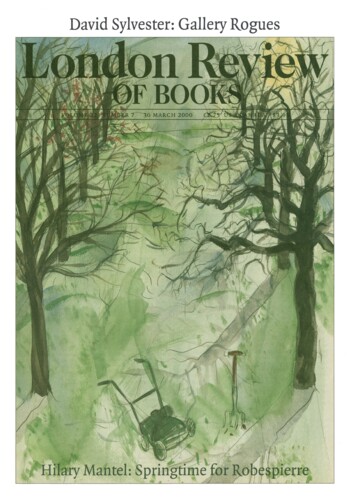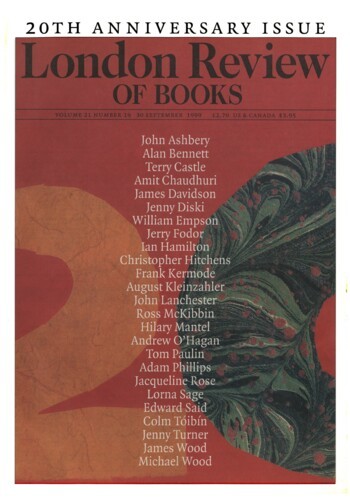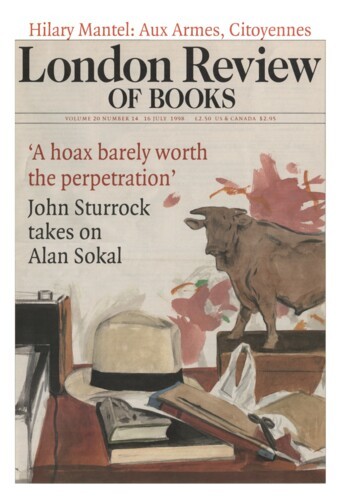Story: ‘How Shall I Know You?’
Hilary Mantel, 19 October 2000
One summer at the fag-end of the 1990s, I had to go out of London to talk to a literary society, of the sort that must have been old-fashioned when the previous century closed. When the day came, I wondered why I’d agreed to it; but yes is easier than no, and of course when you make a promise you think the time will never arrive: that there will be a nuclear holocaust, or some other...




